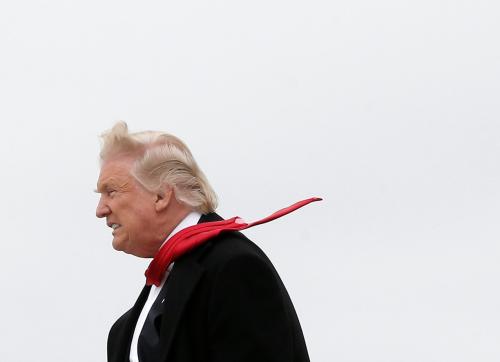At this week’s State of the Union address, President Obama will use his new Cuba policy as a leading example of how he intends to do business for the next two years—with bold strokes and big tent coalitions to secure his legacy, with or without Congress.
The big bang of December 17, when President Obama and President Raúl Castro simultaneously announced their intention to normalize U.S.-Cuban relations, starting with the return of treasured nationals from each side, was heard around the world. The reaction in both countries was highly positive. A recent Pew poll showed two-thirds of Americans in favor of the move, and a similar level of support to end the embargo entirely. Popular sentiment on the streets of Havana was overwhelmingly positive as Cubans anticipate measurable improvements in their daily lives from expanded visits and remittances. Senior figures from the U.S. foreign policy, business and Cuban-American communities have strongly endorsed the new approach and called on Congress to rethink the embargo in order to facilitate greater support to the Cuban people. Key Republicans and Democrats alike have come out in favor of the change or recognized that the embargo’s five-decade failure to effect change at least demands a serious debate. The lightning-pace enactment of revised regulations last week to liberalize trade, travel, telecommunications and remittances is further proof that Obama is determined to do everything in his executive power to shift the dynamic from defense to offense. The dispatch this week of a senior official to negotiate terms of mutual diplomatic recognition formally launches a new chapter toward rapprochement between two Cold War adversaries. It’s about time.
Despite the mad rush to Havana by journalists, business groups and more Americans since the Cuban revolution in 1959, we should be realistic about what comes next. The good news is that the momentum created by the dramatic joint announcement on December 17 likely will have a long shelf life (in Washington politics that means two years). Going big creates a whole new dynamic that will begin to thaw one of the last frozen conflicts of the 20th century. As direct talks take hold between the two governments and, more importantly, between two long separated peoples, the prospect of reversal becomes more and more remote. With luck, the two sides may have learned the lesson that, even if another Alan Gross or spy scandal emerges, they should not close down talks and go home. And with the ailing Fidel Castro no longer in the picture, his brother Raúl has a freer hand to do what’s needed to stimulate the weak Cuban economy.
Both sides, however, face domestic challenges that could slow things down. In Washington, a minority faction of Cuban American members of Congress and their dwindling but well-financed allies will try to create as much interference as they can—from blocking funds to run an embassy and opposing the appointment of a new ambassador to overruling a likely executive decision this spring to remove Cuba from the dreaded state sponsors of terrorism list. These, however, are manageable risks as long as the White House remains firm in its stance to oppose roll backs, and as long as the Cubans don’t make any major moves to undercut the President’s gambit. It will help if legislators who support President Obama’s approach get vocal and organized enough not only to play defense but to demand a long overdue debate on lifting the embargo and ending the ban on all American travel to the island. The congressional delegation that visited the island this past weekend is a step in the right direction.
In Havana, it’s a more complicated and opaque situation. Hardliners in the Communist Party who have the most to lose from an opening to Washington could force Raúl Castro to throw thousands more Cubans in jail or unleash a migrant crisis. Their obsession with maintaining one-party control of politics and the economy could cause the government to throw roadblocks in the way of economic reforms that are necessary to modernize Cuba and allow it to take advantage of the massive U.S. market. China or Russia could decide to ramp up a return to Cold War politics and offer an economic lifeline that Cuba just couldn’t refuse. As unlikely as each of these scenarios is, we know from history to expect the unexpected when it comes to U.S.-Cuban relations.
Either way, major changes in the tone and substance of U.S.-Cuba relations are now underway. They will not lead to immediate results or quick solutions. Five decades worth of acrimony, loss and suffering cannot and should not be erased overnight. A serious process of reconciliation, both bi-national and within the Cuban community on and off the island, must be constructed and implemented with great care and sensitivity. A broad cross-section of civil society must be given a voice without threat of imprisonment or manipulation by those opposed to change. Longstanding property disputes involving nearly 6,000 claimants will have to be tackled sooner rather than later, before looming court judgments to garnish revenue get in the way of rebuilding economic bridges between two natural trading partners. In other words, the messy but typical business of two sovereign neighbors will now take center stage through a process of constructive engagement. And that’s a whole lot better than exploding cigars and shooting down planes.
The Brookings Institution is committed to quality, independence, and impact.
We are supported by a diverse array of funders. In line with our values and policies, each Brookings publication represents the sole views of its author(s).



Commentary
On Cuba, Expect Steady But Slow Progress on Both Sides
January 20, 2015